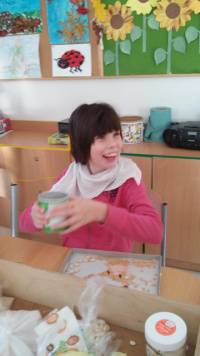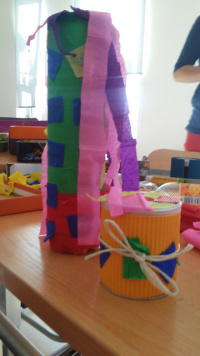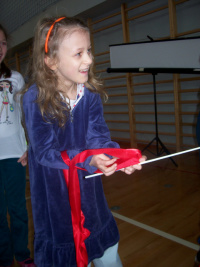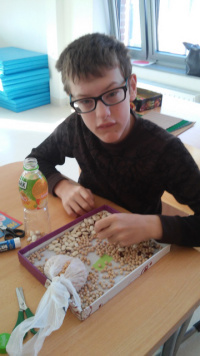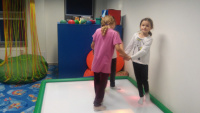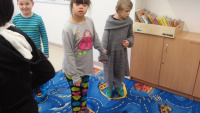It is well known that music has therapeutic properties. It is one of the oldest ways of externalizing human experiences and emotions. It gives the opportunity to receive pleasant and pleasant sensations, it can be a source of relaxation. It helps to overcome monotony and establish contact with another person. Music makes a person more sensitive to the reception of signals from the environment. It also affects the development of body awareness, concentration of attention, memory and imagination. It shapes physical fitness, grace of movements. Thanks to musical activities, a person can also improve the ability to cooperate in a group or a sense of agency. Music therefore creates the possibility of influencing many levels of human functioning: the motor sphere, cognitive processes, emotional processes, the social sphere. Music therapy is therefore an excellent method with which situations can be created to stimulate the development of children and adolescents with intellectual disabilities.
Below you will present proposals for specific actions under the previously mentioned forms.
Passive reception of music:
– passive listening to various musical genres;
– the use of appropriately selected music as a background for relaxation techniques;
– visual-auditory stimulation (combining image with music – the use of audiovisual technology),
– multisensory stimulation (auditory, sensory, visual, motor).
Active perception of music:
– games shaping orientation in the scheme of one's own body,
– movement expression inspired by music (movement stories, dance, pantomime);
– artistic expression inspired by music (painting, sculpting, molding);
– musical expression inspired by music (musical improvisations);
– verbal expression inspired by music (creating stories, nursery rhymes).
Active music therapy:
-song
– learning to play instruments,
– making music (reproducing simple rhythmic structures (photo 6), rhythmic improvisations, co-music-making).
Bibliography: Musical fun, Mirosław Zalewski , Wydawnictwo Oświatowe Fosze, Rzeszów 2008
Improvement, upbringing and teaching of people with deeper mental retardation, ed. Jan Pilecki, Wydawnictwo Naukowe Akademii Pedagogiczna, Kraków 2002


